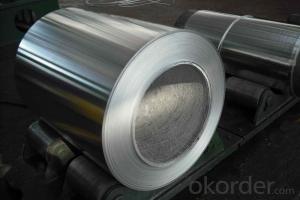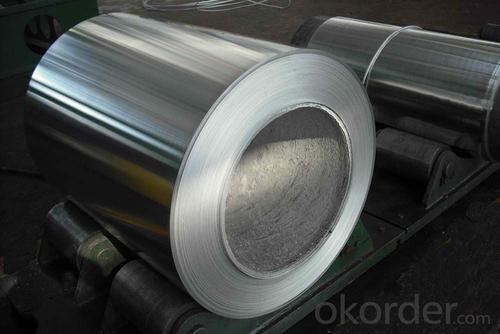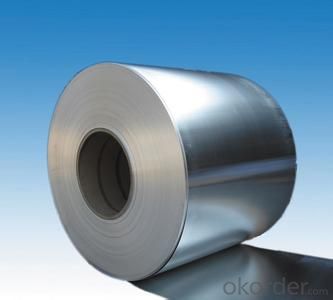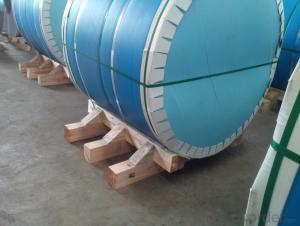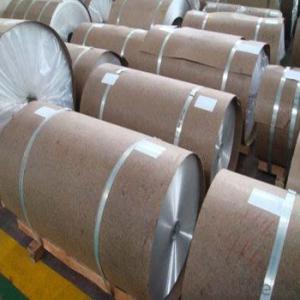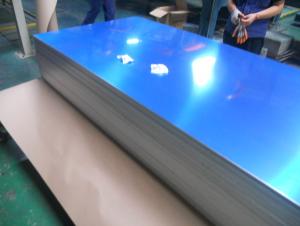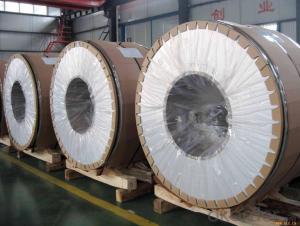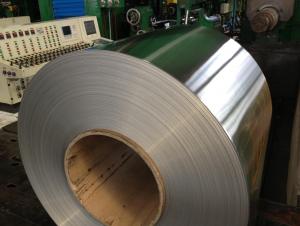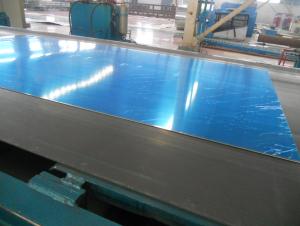Direct Casting Aluminium Coils for Rerolling
- Loading Port:
- Shanghai
- Payment Terms:
- TT OR LC
- Min Order Qty:
- 5 m.t.
- Supply Capability:
- 20000 m.t./month
OKorder Service Pledge
OKorder Financial Service
You Might Also Like
Specification
1.Structure of Direct Casting Aluminium Coils for Rerolling
Direct Casting Aluminium Coils for Rerolling is one semi-finished aluminium material. This strip can be rolled down to aluminium coil,sheet,circle ect. The alloy AA1050 is widly used in building, industry ect. Its weight is much lower than steel. So many customers choosed aluminium material instead of steel.
2. Main features of Direct Casting Aluminium Coils for Rerolling
a.Competitive price---We have our own mills and can produce mill finished aluminium coils, so we can control the production cost better.
b.Professional after-sale service---We have more than 15 years exportation experience and you need not worry about the exporation problems.
c.Fast delivery time---We can control the delivery time within 35 days.
3. Image
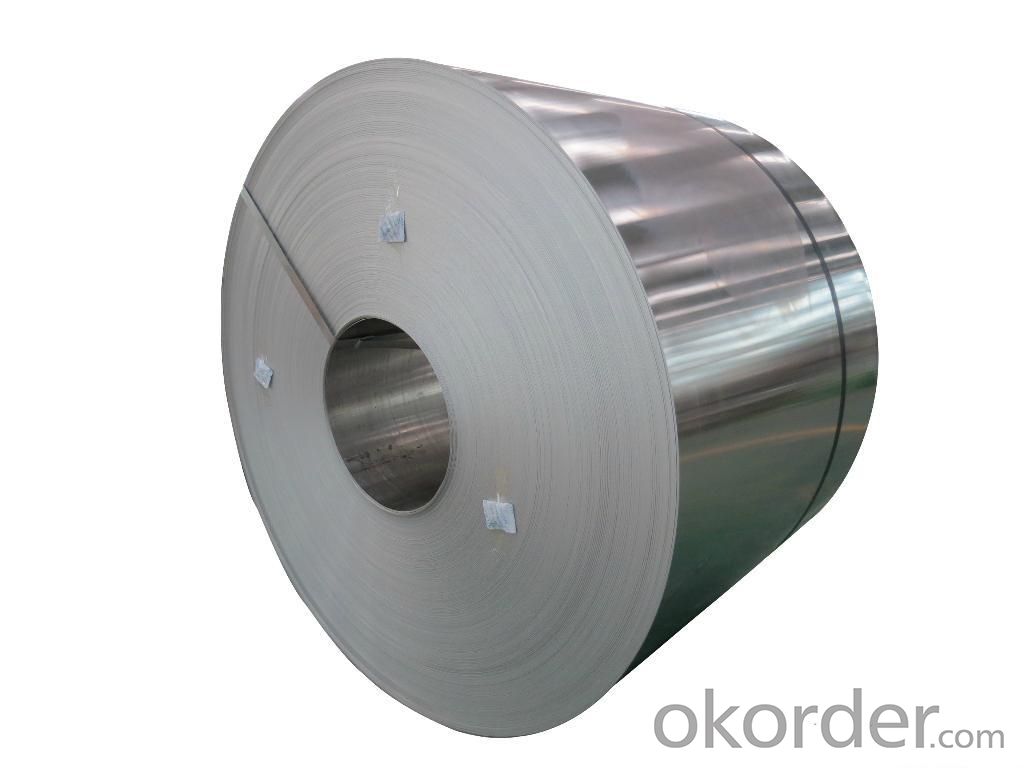
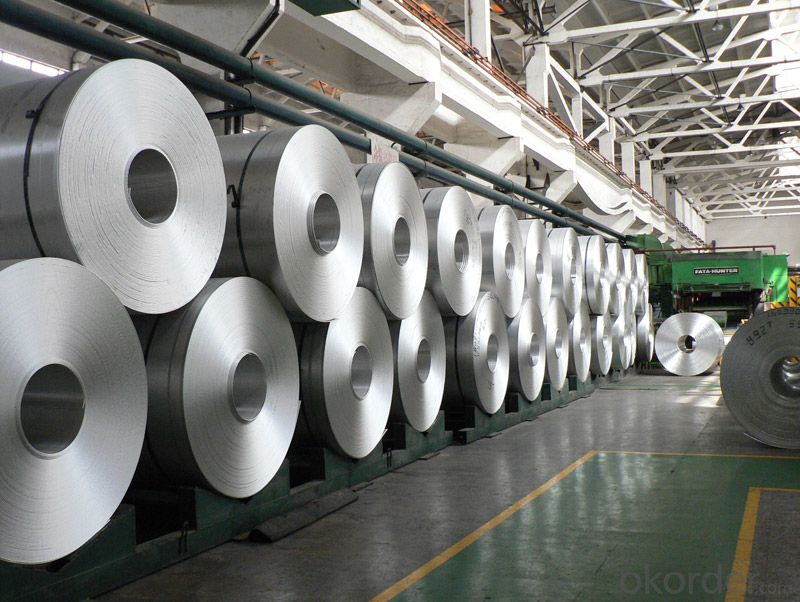
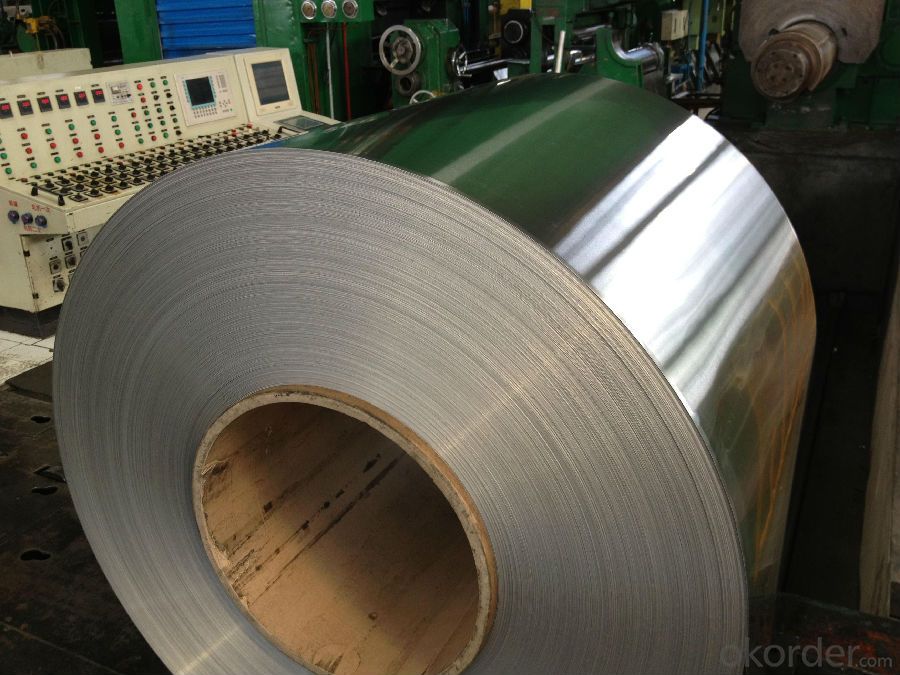
4. Product Specification
| Alloy | Temper | Thickness | Width | Weight |
| AA1050 | H18,H14,F | 0.2MM-3MM | 1000MM-1500MM | About 2.5 tons |
5.FAQ:
What is the quality standard?
---Usually our standard is GB3880-2006
What is the largest width?
---It is 2300mm
What is the MOQ?
---Usually we can accept 80 tons.
- Q: Can aluminum sheet be painted or coated after fabrication?
- Yes, aluminum sheet can be painted or coated after fabrication. The surface of the aluminum sheet can be prepared by cleaning and etching to ensure proper adhesion of the paint or coating.
- Q: Can aluminum sheet be painted?
- Yes, aluminum sheet can be painted. However, it is important to properly prepare the surface by cleaning, sanding, and priming it before applying any paint. This will ensure better adhesion and durability of the paint on the aluminum sheet.
- Q: Can 101 aluminum sheets be used in the production of consumer electronics?
- Yes, 101 aluminum sheets can be used in the production of consumer electronics. Aluminum is a lightweight and durable material that is commonly used in various electronic devices, including smartphones, laptops, and tablets. The specific grade of aluminum, such as 101, determines its properties and suitability for different applications.
- Q: What are the typical thickness options for aluminum sheets?
- The typical thickness options for aluminum sheets vary depending on the specific application and industry requirements. However, aluminum sheets are commonly available in a range of thicknesses. Some of the most common thickness options for aluminum sheets include 0.025 inches (0.635 mm), 0.032 inches (0.81 mm), 0.040 inches (1.02 mm), 0.050 inches (1.27 mm), 0.063 inches (1.6 mm), 0.080 inches (2.03 mm), and 0.125 inches (3.18 mm). These thicknesses are often used in various industries such as aerospace, automotive, construction, and manufacturing. It's worth noting that specialty aluminum sheets can be found in even thicker options, depending on the specific requirements of a particular project.
- Q: What are the different methods of surface coating for aluminum sheets?
- There are several methods of surface coating for aluminum sheets, including anodizing, powder coating, painting, and laminating.
- Q: What are the different types of alloys used for anodized aluminum sheets?
- There are various types of alloys used for anodized aluminum sheets, including 1000 series (pure aluminum), 3000 series (aluminum-manganese alloys), 5000 series (aluminum-magnesium alloys), and 6000 series (aluminum-magnesium-silicon alloys). Each alloy offers different properties and characteristics, allowing for a wide range of applications in industries such as construction, transportation, and electronics.
- Q: Can the export quality of China's aluminum plate meet the requirement of ASTM B 209? Is this requirement for our country? Master the exhibitions, O (a _ U) O thank you
- This is not quite clear, you Baidu once "work standard net" in "work standard net" check to know!
- Q: What are the different heat treatment options available for aluminum sheets?
- Some of the different heat treatment options available for aluminum sheets include solution heat treatment, precipitation hardening, annealing, and stress relieving.
- Q: This question asks for a list of various types of aluminum sheets that can be used for decorative purposes.
- <p>Aluminum sheets are popular for decorative purposes due to their durability and versatility. The main types include: 1) Embossed Aluminum Sheets, which feature a textured surface for a unique look; 2) Perforated Aluminum Sheets, with holes of various sizes for a distinctive pattern; 3) Mirror Finish Aluminum Sheets, offering a reflective, shiny appearance; 4) Anodized Aluminum Sheets, which have a protective oxide layer for enhanced color and durability; 5) Brushed Aluminum Sheets, with a satin-like finish; 6) Color Coated Aluminum Sheets, available in a wide range of colors; 7) Composite Aluminum Panels, which combine aluminum with other materials for added strength and design options. Each type offers specific aesthetic and functional benefits for various decorative applications.</p>
- Q: Are aluminum sheets suitable for lightweight structures?
- Yes, aluminum sheets are suitable for lightweight structures. Aluminum is known for its low density and high strength-to-weight ratio, making it an ideal material for lightweight applications. Aluminum sheets are commonly used in industries such as aerospace, automotive, and construction, where weight reduction is crucial. They offer excellent corrosion resistance, durability, and formability, allowing for easy fabrication and installation. Additionally, aluminum sheets can be easily joined using various welding and adhesive techniques, further enhancing their suitability for lightweight structures.
Send your message to us
Direct Casting Aluminium Coils for Rerolling
- Loading Port:
- Shanghai
- Payment Terms:
- TT OR LC
- Min Order Qty:
- 5 m.t.
- Supply Capability:
- 20000 m.t./month
OKorder Service Pledge
OKorder Financial Service
Similar products
Hot products
Hot Searches
Related keywords
